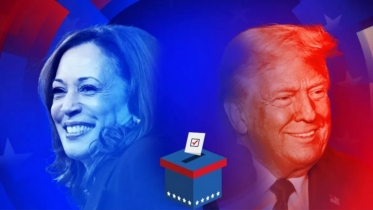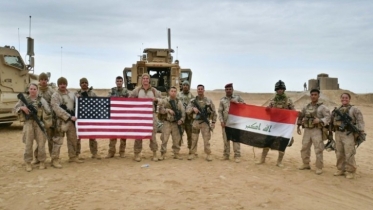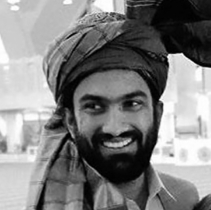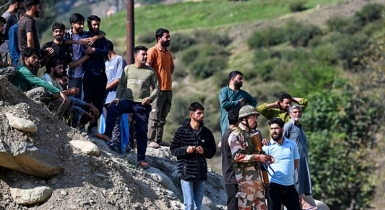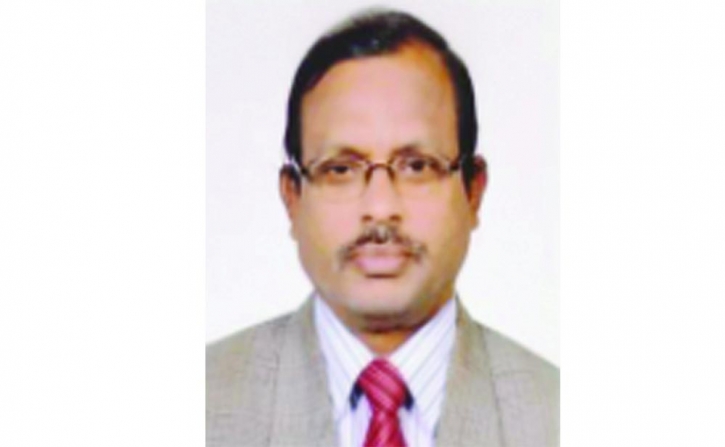
The Chief Election Commissioner (CEC) Kazi Habibul Awal announced the schedule for the 12th Jatiyo Sangsad elections last Wednesday, November 15, after 7 pm. Leaders, activists and supporters of Awami League, one of the main political parties willing to participate in the elections, congratulated the announcement of the schedule. Awami League has started preparing for the polls vigorously. At the same time, the members of the 14-party alliance led by Awami League are also preparing for the elections. They want to finalize the seat sharing within the coalition soon.
The parties seeking to participate in the elections are- Awami League, Jatiya Party (JP), Workers Party of Bangladesh, Jatiya Samajtantrik Dal (JSAD), Demokrati Party, Islamic Front Bangladesh, Bangladesh Nationalist Front (BNF), Bangladesh Samyabadi Dal, Bangladesh Tariqat Federation, Alternative Dhara. Bangladesh, Zaker Party, Bangladesh Islami Front, Trinamool BNP, Bangladesh Nationalist Movement (BNM) and Bangladesh Supreme Party (BSP).
On the other hand, BNP, established by the country's first military ruler, rejected the announced schedule. Awami League President and Prime Minister Sheikh Hasina kicked off the sale of party nomination papers on November 18, 2023 by collecting her form for the 12th parliamentary elections slated for January 7. The AL chief opened the sale of the nomination papers from the party's central office at Bangabandhu Avenue at 10:30am (November 18, 2023).
The activities of the leaders and their supporters who are hoping to be nominated in the election have started to heat up significantly. The tea-stalls in the capital Dhaka and villages and towns outside Dhaka are becoming lively as usual with the questions of "who is running in the election, who is being nominated from the party?" Observers view that the BNP has rejected the election schedule as the BNP president, senior vice-president and his wife would not compete in the elections because they have been convicted under the conventional justice system of the country. However, the BNP has not yet announced whether it will boycott the polls in the end! Observers smell a mystery here!? At the last minute BNP can come and start nominating candidates? Honorable Prime Minister Sheikh Hasina has also recently given such an indication in the context ! However, what will happen, if at the end BNP boycotts elections like in the past and continue destructive activities to offset it?
In response to this question, one may recall the political fate of Maulana Bhasani-led NAP, the then popular political party that boycotted the 1970 elections. Maulana Bhasani was very fond of Bangabandhu, it is relevant to mention the political consequences of Maulana Bhasani's party due to boycott of elections. During the liberation war, after the victory in the liberation war, and especially after the assassination of Bangabandhu on August 15, 1975, Maulana Bhasani gave birth to many questionable activities. Despite the political criticism about him for these reasons, it can be said that due to the boycott of the 1970 elections, his party gradually became irrelevant and eventually his party ended up like the Muslim League.
An important information has been revealed in the investigation of the reporters, that is, many leaders and workers of BNP believe that the unsuccessful attempt to resist the January 5, 2014 election by BNP-Jamaat was a wrong decision. "In 2016 after two years of January 5 (2014) parliamentary elections, many of the central leaders of the party feel that it was not right for BNP to boycott that election. If BNP had participated in the elections, the situation would not have been so bad. The 2016 municipal elections gave that perception a firmer foundation.”
BNP leaders at various levels, who did not want to be named, expressed this perception about the January 5, 2014 election in private conversations. But they were not willing to comment publicly. Because, BNP Chairperson Khaleda Zia was adamant about not participating in the elections under the party government. In this situation, no one took the risk of speaking in favor of going to the polls. Because there was a fear of being labeled as a 'government agent'.
The leaders of BNP used to say at that time, they (BNP) did not get the expected results in the (2016) municipal elections. But after about two years (of 2014), the party leaders got an opportunity to return to the field from hiding. They were able to participate in political activities for about a month. In this, a sense of trust was created after overcoming the attitude of hiding for a long time among the leaders and workers. Some of the party leaders considered this situation to be a major political success in the last two years before 2016.
An important leader of the party then told the media that although they did not officially admit it, they felt that it was a mistake of the BNP not to go to the January 5, 2014 elections. His personal assessment is that if the BNP had gone to the polls, the situation might have been different.
Maulana Bhasani's boycott of the 1970 elections was cited as the humanitarian disaster caused by cyclones in the coastal areas, resulting in millions of lives. Even so, Maulana's party did not escape the clutches of near extinction. But in 2014, the BNP boycotted the elections due to its association with Jamaat, London-based leader's 'pledge not to do politics', militant links, and corruption cases as well as Khaleda Zia's arrogance. According to a BNP leader who did not wish to be named, BNP would have retained some seats even if it had lost the 2014 elections. At least BNP would have been the main opposition party. It had the opportunity to speak in different places including parliament as well as on the highway. Diplomats did not even have to face questions. However, Mahbubur Rahman, a member of the party's standing committee, told the media at that time (2016), 'We are struggling for democracy and voting rights. I think this struggle could have been done by participating in the elections with the people.
An adviser to the BNP chairperson has assessed that the BNP has a bad reputation for the February 15, 1996 elections. With this example the BNP expected that Awami League would have been questioned at home and abroad through the election of January 5, 2014, and that would be a big gain for BNP. Many of the BNP leaders assumed, if put under pressure, the Awami League government (of 2014) would also resign like what BNP did in 1996. However, that also did not happen, For that, the party accepted the mediation of UN Assistant Secretary-General Oscar Fernandez Taranco.
While there is ambiguity within the BNP about what exactly went wrong with the strategy of boycotting 2014 elections, there was also disagreement among the 20-party coalition partners.
The chairman of a partner party of the BNP-led alliance, who did not wish to be named, said in an interview to the media at that time (2016), “… BNP made three mistakes in a row at that time. One, Khaleda Zia cancelled the pre-scheduled meeting with Indian President Pranab Mukherjee. Two, the BNP did not respond to Prime Minister Sheikh Hasina’s invitation. Three, the BNP did not participate the polls after talks broke down mediated by Taranko.
In the game of politics there is no escape from the consequences of mistakes. As a result of the mistake, the BNP will be irrelevant in the near future! It is also important to note that even though the BNP has become irrelevant, there is no dearth of opposition parties in the political arena of Bangladesh. The participation of Jatiya Party, Trinamool BNP and many others in the 12th Jatyo Sangsad elections proves it. It may be mentioned that, the rise of the Trinamool Congress in the West Bengal state of India could be attributed to weakness of the Indian National Congress. In the same way, observers view, the political mistakes of the BNP would have led to the strengthening of the Trinamool BNP in Bangladesh.
Whatever may be the situation, people are now become election oriented. They are eagerly waiting to ‘vote to continue’ the victory journey of establishing a developed, prosperous and smart Bangladesh by the Awami League government under the strong leadership of Prime Minister Sheikh Hasina.
Based on the above analysis, the relevant question is whether BNP is heading for dissolution like NAP (Bhasani) and Muslim League by boycotting and resisting election? Time will answer that. Until then we have no choice but to wait. We expect that the Election Commission will take strict measures according to the law for the safety of the citizens of the country. At the same time the elected government headed by Bangabandhu’s daughter Sheikh Hasina would take vigilant and effective cooperative steps in this regard.
Professor Dr. Arun Kumar Goswami, Director, Center for South Asian Studies. Former Chairman, Department of Political Science, Former Dean, Faculty of Social Sciences, Jagannath University.

